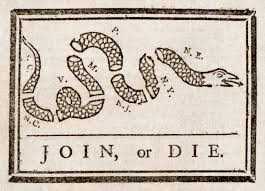The March to Germantown: — Part 4 of 4
On September 26th, Philadelphia fell. Lord Cornwallis, dressed in a scarlet coat with gold lace, led a resplendent procession of 3,000 British and Hessian dragoons. At 11 A.M., they marched down Second Street amidst the "acclamation of some thousands of inhabitants mostly women and children." Following Cornwallis were a group of Tories who had earlier fled the city.
The marchers left a great impression. The Hessians, wrote one Philadelphia, "have terrific mustachios" and the British had "a tranquil look and dignified experience."
But it was a bare city the British captured.
The Rebel Party was carrying off almost every thing, which they thought might be of use to the English army besides what they apprehended might be wanted by themselves which they chiefly took from the Quakers, and such as least favoured them; as blankets, carpets, cloathing, etc. They likewise took away all the lead and leaden pipes and all the bells in the city except one; and they drove off with them about 4000 head of fat or feeding cattle from the island meadows around the city, with most of the horse they could get, leaving the city and remaining inhabitants in much straight and destitute; they likewise cut the banks of the meadows, and laid them under water having seemingly done all the mischief in their power before their departure.
-British Captain John Montresor
The British began the business of fortifying. Barracks were built. Troops were posted at various points about the city. Cornwallis ordered batteries erected along the waterfront to deal with the pesky Pennsylvania navy.
The British would also soon establish a government with Joseph Galloway acting as police commissioner and another Tory, Samuel Shoemaker, named mayor. They wanted the city to resume all signs of normalcy. But in reality, the British would be in charge all along, much to the chagrin of the puppet politicians.
Soon no one would be able to control the reckless behavior of cooped up troops.
Meanwhile, those true to the patriot cause remained active. Patriots were sent into Philadelphia "pretending to be excellent friends to government." They would later send out reports on British actions and movement.
Meanwhile, Washington, humiliated that the British had taken the capital, but buoyed by the performance of his troops at Brandywine, was preparing to recapture the city. He had repositioned his troops several times, and was now preparing a surprise attack on Germantown.



